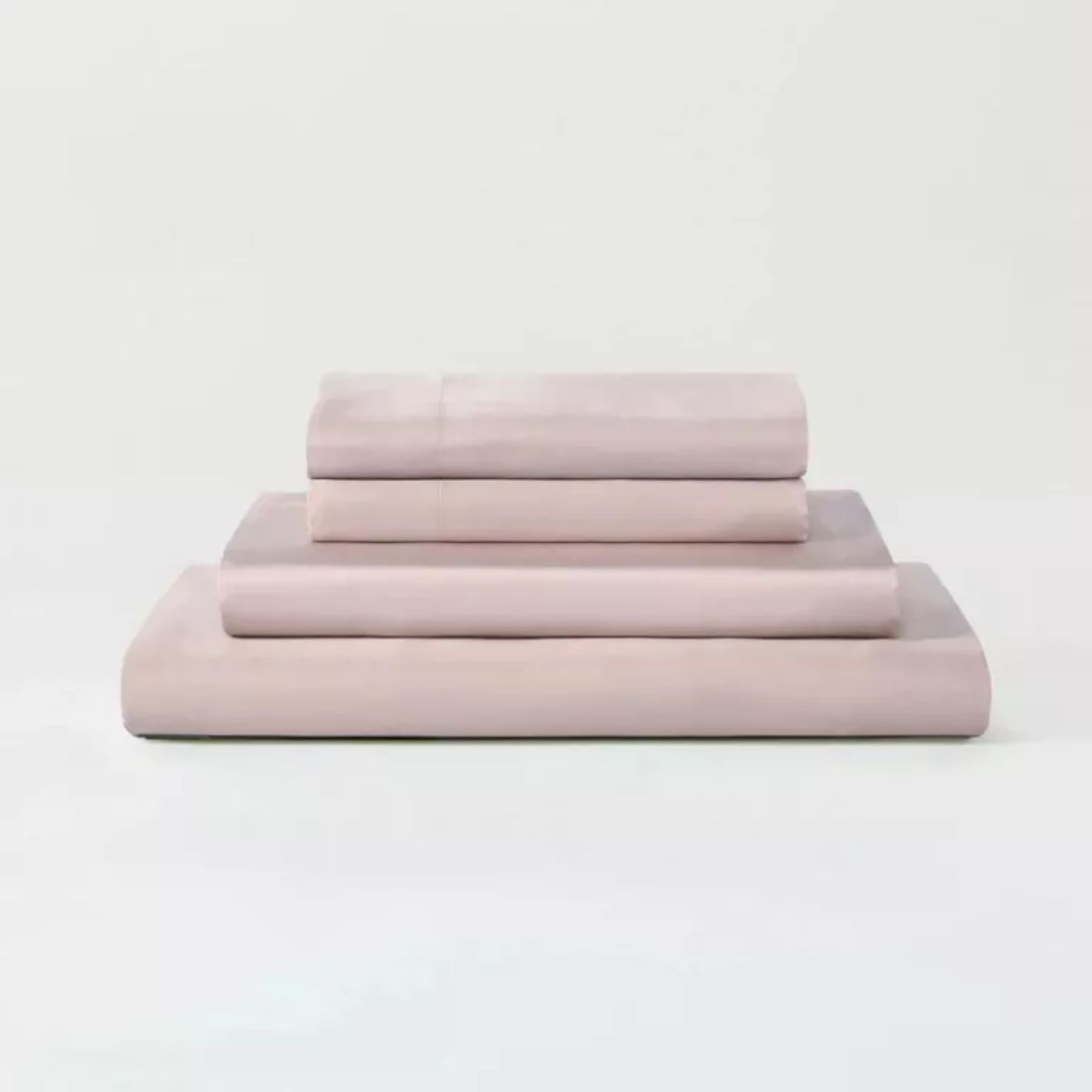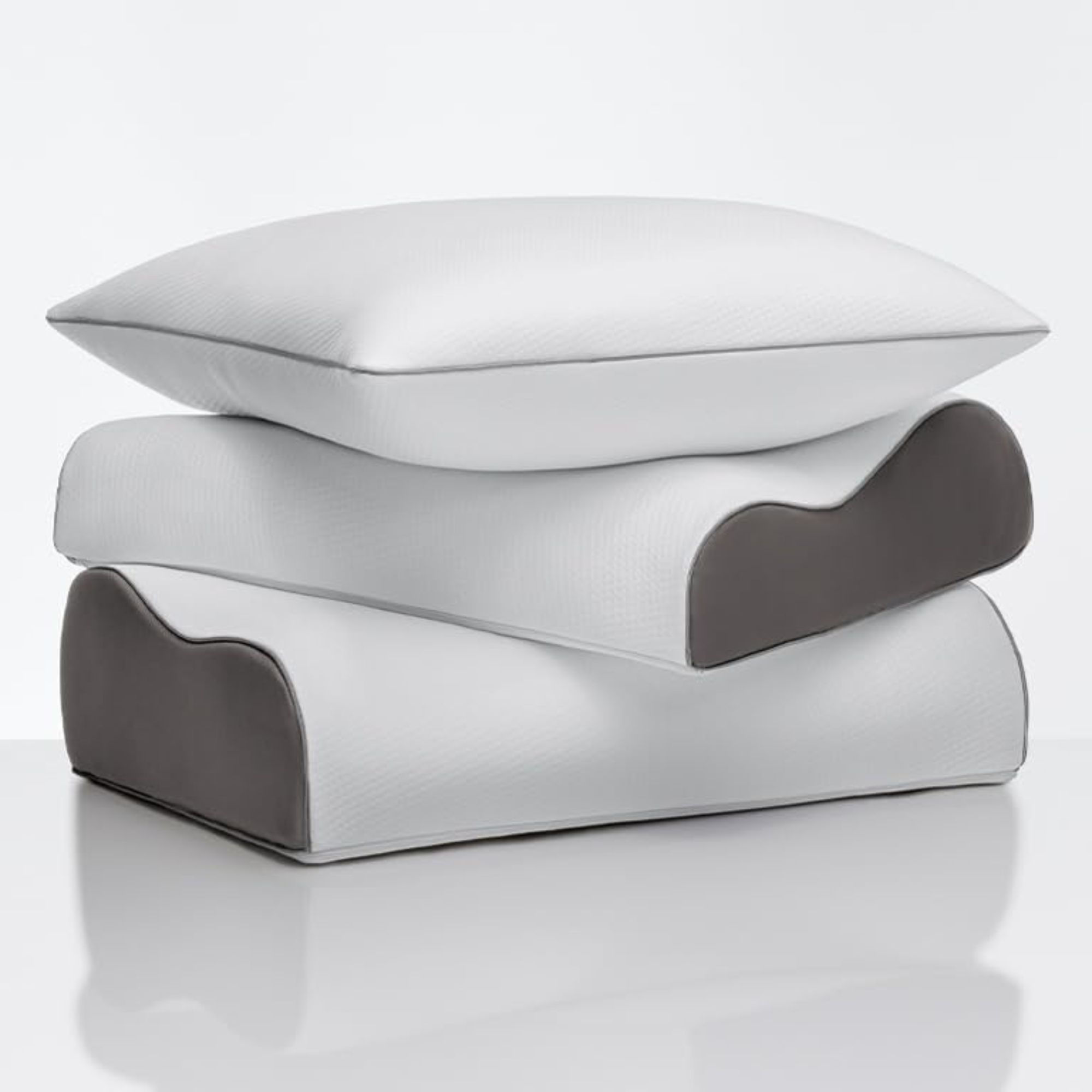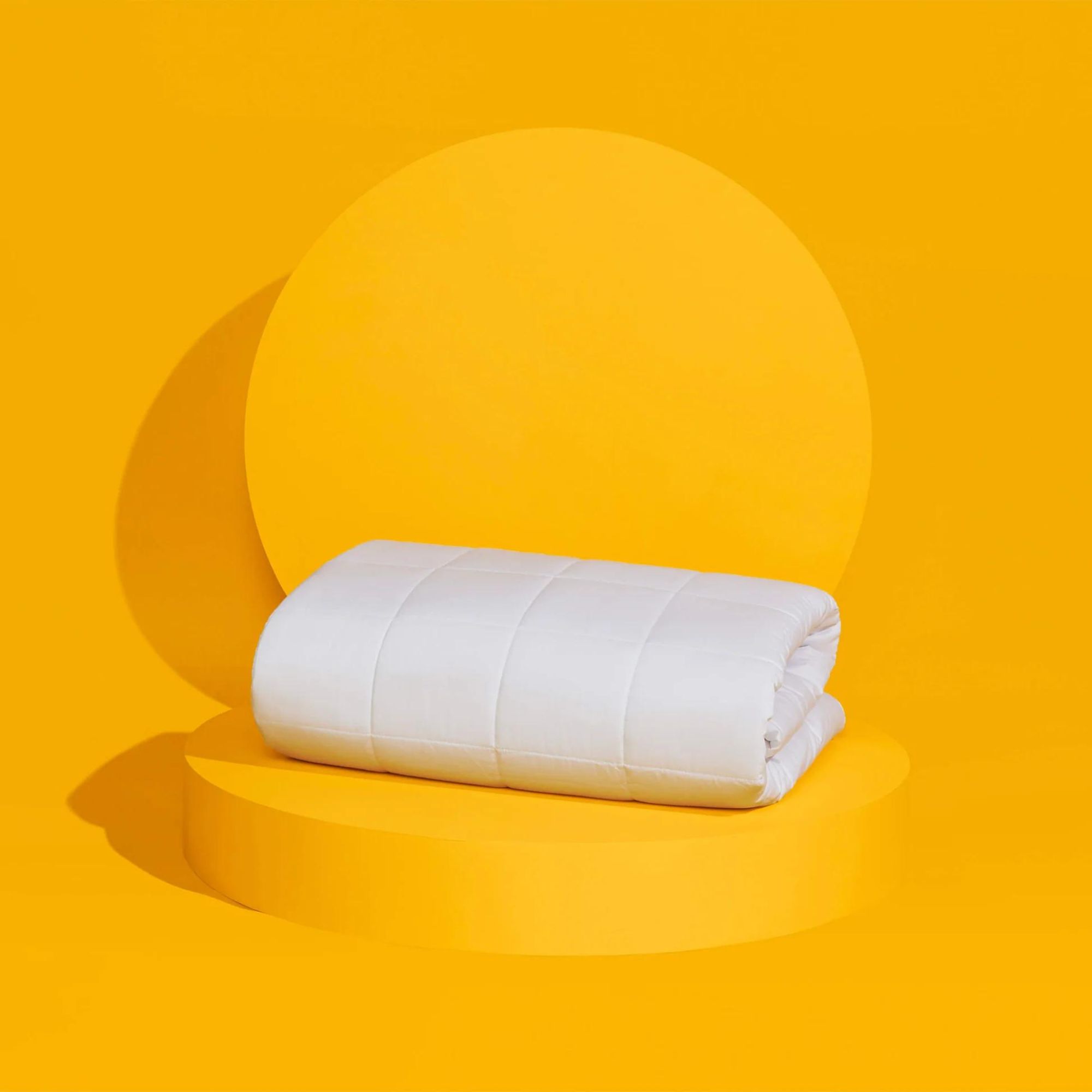Fact or fiction? Our sleep pros delve into whether cooling bed sheets are a gimmick and the golden formula for picking great products
It's not a myth! But there are some caveats, the pros say


Design expertise in your inbox – from inspiring decorating ideas and beautiful celebrity homes to practical gardening advice and shopping round-ups.
You are now subscribed
Your newsletter sign-up was successful
Want to add more newsletters?

Twice a week
Homes&Gardens
The ultimate interior design resource from the world's leading experts - discover inspiring decorating ideas, color scheming know-how, garden inspiration and shopping expertise.

Once a week
In The Loop from Next In Design
Members of the Next in Design Circle will receive In the Loop, our weekly email filled with trade news, names to know and spotlight moments. Together we’re building a brighter design future.

Twice a week
Cucina
Whether you’re passionate about hosting exquisite dinners, experimenting with culinary trends, or perfecting your kitchen's design with timeless elegance and innovative functionality, this newsletter is here to inspire
Do cooling bed sheets really work? Many of us have fallen down the rabbit hole of cooling products, in the hope of improving our sleep and avoiding that unpleasant sticky feeling during hot summer nights. But can bed sheets deliver on a promise to keep you cool?
We've spoken to sleep and bedding product experts who say, yes, good cooling bedding actually is worth it, plus tips on what to look for, and which promises are no more than marketing ploys.
Before you start shopping for the best cooling bed sheets, consider this expert advice on what is worth spending extra for, and whether you need to change your bed linen to cool down on a hot night.
Do cooling bed sheets really work?
What are cooling bedsheets?
Many bed linen products are marketed as 'cooling', but what are they and importantly, do they work?
Aidaliz Jimenez, who is a Buyer and luxury fabrics expert for Fine Linens of New York, has been in the textiles business for 24 years. She is cautious about using the term, telling us that 'I would say that the proper term that should be used is coolest bed sheet options instead of cooling bed sheets.'
Jimenez makes an important point: while it is true that some bed sheets feel smoother and cooler to the touch, there is no evidence that any bed sheets can actually change your body temperature.
Having said that, 'cooling bed sheets' is a common term and is often applied to bed sheets made from materials that wick moisture away from the body. Dr. Chelsea Perry, Owner of Sleep Solutions and a member of the American Academy of Sleep Medicine, is confident that 'cooling bed sheets can be effective for those who tend to overheat during sleep, but you just need to know what you're looking for.
Design expertise in your inbox – from inspiring decorating ideas and beautiful celebrity homes to practical gardening advice and shopping round-ups.
How do cooling bedsheets work?
As Dr Chelsea Perry explains, 'The technology behind these sheets usually involves special materials designed to regulate temperature and wick away moisture.'
There are several bed sheet types and materials that can do this, including bamboo, silk, and tencel, a semi-synthetic material made using eucalyptus wood pulp, as well as various high-tech synthetic blends.
'These fabrics are breathable and help in keeping the body cool by allowing better air circulation', says Perry. 'Some cooling sheets also incorporate phase-change materials that absorb and release heat to maintain a stable temperature.'
In practice, the technology behind all 'cooling bed sheets' is more or less the same. They work by being breathable and evaporating sweat from your body rather than holding onto it. Your body naturally cools itself down by sweating, but the sweat has to go somewhere. If your bed sheets continuously absorb moisture throughout the night, not only will you continue feeling hot, but you also will increasingly feel uncomfortably sticky.
At the same time, even if your material is moisture-wicking, if it's not breathable it will trap your body heat, again making you feel pretty uncomfortable. So, the golden formula you're looking for is breathability AND moisture-wicking ability.
How to pick cooling bedsheets
There is a lot of choice out there, with natural fibers the obvious choice for anyone who wants sheets that feel cool and smooth to the touch and won't trap your body heat.
Aidaliz Jimenez explains, 'The most breathable fabrics that are nice and smooth and comfortable to sleep in begin with a fine or stone-washed linen, a voile cotton, or a percale weaved cotton with a thread count that is 200-500 depending on the type of yarn.'
Our best luxury bed sheets have varying high thread counts, while linen in particular is famed for its temperature-regulating credentials. We especially love Piglet In Bed's Linen Bundles, but many other high-end retailers stock 100% linen sheets.
While cotton is not as good at temperature regulating as linen, it can be a good option if you look for the weaves recommended by Aidaliz. These are lighter types of cotton and will feel smooth and cool to your body.
Other good options include Lyocell and bamboo. Lyocell, also known as Tencel, is a semi-synthetic fiber that is made from regenerated cellulose pulp. It is surprisingly breathable and feels very smooth to the touch, so much so that it's often used as a substitute for silk. Our favorite Lyocell sheets are Sijo AiryWeight Eucalyptus Sheets, which are anti-microbial and its material responsibly sourced and made from FSC & PEFC-certified eucalyptus wood.
Pro tip: Aidaliz reminds us that it 'matters what kind of material is within a mattress pad or mattress protector. All layers that we lay on matter when taking into consideration the rise of body temperature during sleep.' If you have a plastic mattress topper or a sweaty-feeling pillow, you will feel hot at night even with the most breathable sheets on top of it, so choose wisely.

These are some of the smoothest, loveliest Tencel/Lyocell sheets we've seen on the market. They feel similar to silk ones but are much more wallet-fiendly.

Don't forget that your pillow plays a big role in how cool you keep at night. The True Temp Pillow is crafted from three layers of thermoregulating foam and encased in a smart synthetic blend that will never feel sticky or sweaty.

It's not just your sheets, but also your duvet insert of comforter that makes a difference to how cool you'll feel. SlumberCloud especially formulated this comforter for warmer climes and hot sleepers. We like how thin and light it feels, without compromising on quality.
FAQs
What are the pros and cons of cooling bedsheets?
The pros of opting for cooling bedsheets are self-explanatory but you can hope for 'improved sleep quality and reduced night sweats', according to Dr. Perry. Bedsheets advertised as 'cooling' are also typically pleasant and smooth to the touch.
There are, however, a few cons to bear in mind. One is that materials that help you stay cool typically have a higher price point. Dr Perry cautions that 'durability can vary depending on the material and brand.' For example, cheaper bamboo sheets often do not last long, and the same can be said for cheap cotton. You may notice pilling on lower-quality sheets after only a few washes. Unfortunately, you really get what you pay for, regardless of whether you're going for a natural fiber or a high-tech synthetic blend.
Are cotton bedsheets cooling?
It all depends on the type of cotton you choose. While thread counts are not always an indicator of quality with cotton, it is worth checking the thread count of your sheets before buying if you tend to run hot. Dr Chelsea Perry says, Avoid sheets with overly high thread counts, as they can trap heat.' As a rule, anything with a thread count of over 500 will be too thick and heavy for the hot months.
Are polyester bedsheets cooling?
You may have read online that polyester is a moisture-wicking material. After all, polyester is very commonly used in high-performance athletic wear because it wicks away moisture. Isn't it a good choice for cooling bedsheets by definition?
Actually, neither of our experts recommends this synthetic material. Dr Chelsea Perry emphatically recommends staying away from 'synthetic materials that don’t breathe well.' Polyester is moisture-wicking, but it is not breathable. You will still feel uncomfortable sleeping on polyester.
Meet our experts

Dr. Chelsea Perry is the founder/owner of Sleep Solutions in Westborough Massachusetts. She is also a member of the American Academy of Dental Sleep Medicine. At Sleep Solutions she has a focus on treating sleep apnea and snoring.
While bedsheets can only do so much, they can help you stay cool at night, provided you know how to keep your bedroom cool. Fortunately, there's enough of a choice of fabrics and designs out there to suit most tastes. You can opt for natural or synthetic fibers. Just avoid heavy cotton and polyester.

Anna is a professional writer and academic. She taught English Literature for several years before joining Future where she wrote for Real Homes, Homes & Gardens and Livingetc for four years. She is a regular contributor for Parade Home, BiggerPockets, and many other publications. In her spare time, Anna enjoys hiking and gardening.